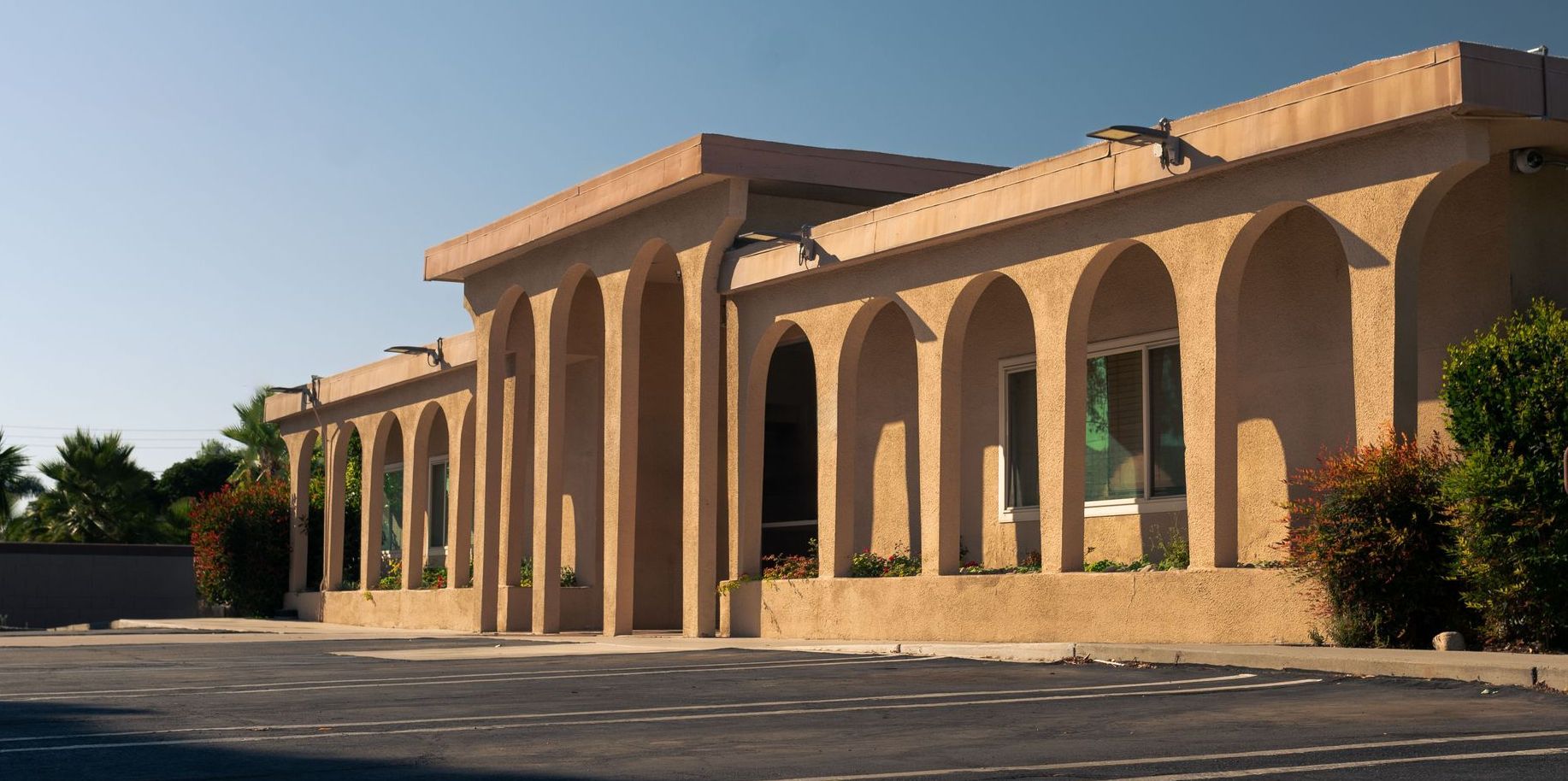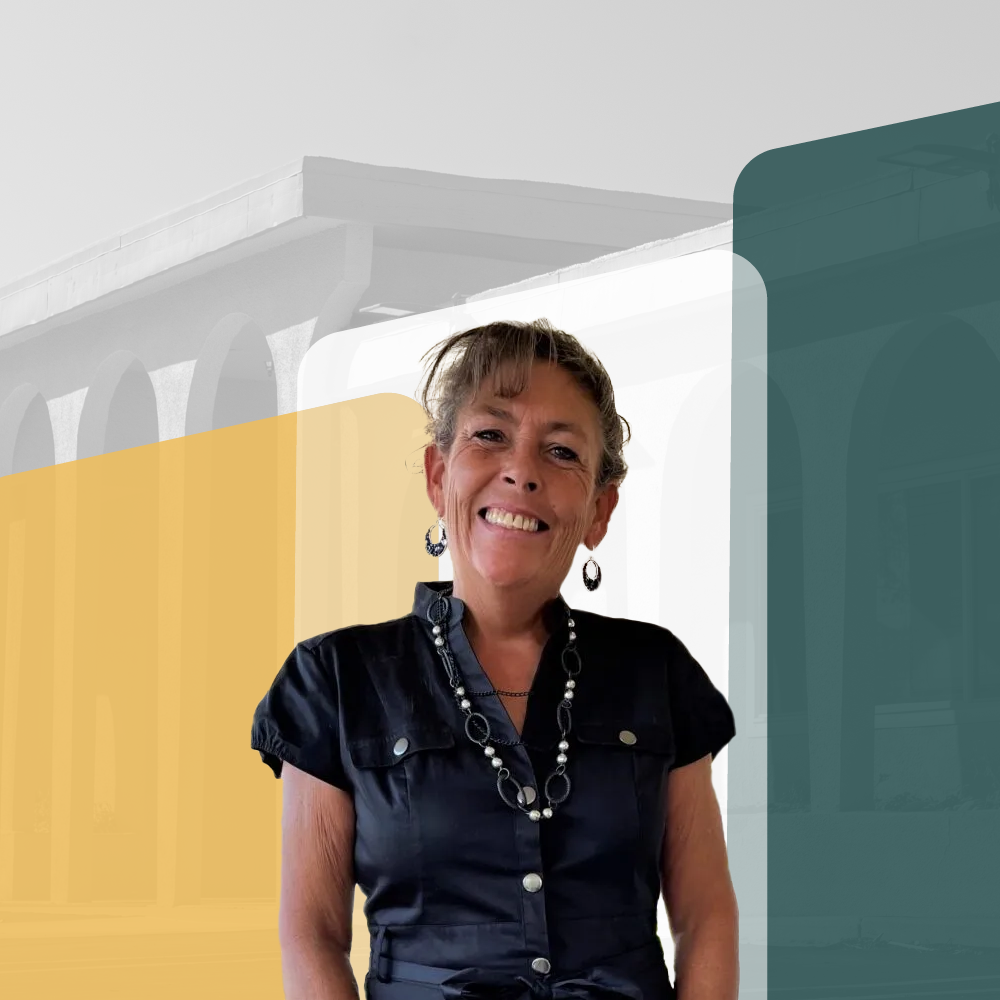Thinking Clearly

“What does Misty want?” That’s what Misty’s counselor asked as they worked through her addiction. With her judgement clouded by alcoholism, Misty struggled to pinpoint the answer. But over time, as she continued to work the program, she began to think clearly and discover the truth about what she wanted for her life.
Raised in a dysfunctional family, Misty was a lonely child. She was sexually abused as a young girl and fell into depression. During high school, her family moved around frequently, and she found herself using alcohol to numb her feelings. In her 20s, she was deep into the party scene, using alcohol not only as a comfort but also as a method to feel bold and glamorous. Misty said, “It was a comfort. It was my medicine. It gave me courage to talk and be bolder. I was wittier and prettier when I drank.”
But in retrospect, she said, “I didn’t realize how lonely I was.”
When her boyfriend went through AA, she discerned that her family had suffered with addiction when she was growing up but thought it would never happen to her. As she dipped deeper into her own alcoholism, she would lose her inhibitions and “confuse all kinds of things with love.”
Misty’s first husband was an abusive alcoholic. They had two children together, but Misty continued her drinking habits. She admits that she was a functioning alcoholic but didn’t realize it at the time. She was able to keep up with her job while drinking only after work and on weekends. She said, “It became an issue when I started having a drink before work. It became a necessity; my body needed it to keep going.”
That daily alcohol abuse lasted 4-6 years and did a great deal of damage in her life. But she wasn’t thinking clearly. Even when she lost her job, Misty did not worry. She said, “Drinking takes your cares away and becomes your life.”
She became homeless when the house she was living in was sold. She said, “I didn’t care as long as I had more alcohol.” She became a bartender and bounced from place to place for a place to sleep.
Finally, she began to feel miserable when she was drinking. She said that she became a “mean drunk” and that suicide became a tempting alternative. After a couple of failed suicide attempts, she said, “I knew I had to quit but didn’t know how.” Fortunately, a doctor told her about the withdrawal management program at Cedar House.
For six days, she detoxed from alcohol at Cedar House, followed by another 106 days in the residential program. During that time, she said, “I learned so much of myself and why we turn to alcohol. It wasn’t just three hots and a cot for me.” She learned that she had developed a mental disorder in connection with her alcohol abuse and worked with her counselors to heal.
About the staff at Cedar House, Misty said she was most impressed with “their understanding of the disease; their knowledge; their experience; and their ability to pinpoint where I needed to start.”
She felt safe at Cedar House and worried about “what’s going to happen when I get home.” After graduating from the program, she made an effort to rearrange her room and her life when she went home. When she found herself starting to get complacent, she went to a meeting her friend was leading. From then on, she has gone to a meeting every day. She said, “You can only take it one day at a time. You have to truly work the program. I am definitely a changed person.”
Misty’s Case Manager Salena gave her a packet with information on feelings and emotions when she was at Cedar House that Misty continued to refer to for answers. She knew that the question: “what does Misty want?” was an important one that she needed to learn to answer by understanding her own feelings. She said, “Those questions are hard when you’ve been clouded.” She is proud to say that, a year later, by taking it one day at a time, she is a changed woman who is thinking clearly.


There is nothing quite as powerful as a mother’s love. From the moment her son was born, Sereeta knew she would do everything she could to protect him. She had already experienced the heartbreak of losing her children once, and she was determined never to feel that pain again. Sereeta’s struggle with addiction began at the age of 19. She entered treatment and remained sober for six years, building a life she was proud of. But everything changed when she became a victim of domestic violence. The abuse eventually led to her losing custody of her five children -- a loss that shattered her world and led to relapse. “I could not get away from him. He would try to control me.” Desperate to escape the violence, Sereeta left and began living on the streets. She slept near a shopping center, searching for safety and resources wherever she could find them. One day, at a charity donations center, a woman noticed her and offered help. That connection led Sereeta to Cedar House, where she sought treatment for methamphetamine and marijuana addiction, and where her life began to change. “I knew I wanted a change but didn’t know how.” Years of trauma and loss had taken a toll. Sereeta struggled with anger and didn’t yet know how to process the pain she carried. What surprised her most was the compassion she encountered at Cedar House. Staff members didn’t give up on her. They believed in her, even when she struggled to believe in herself. “I saw that different people had hope in me.” Just one week after arriving at Cedar House, Sereeta was hospitalized. Over the next three weeks, she remained in close contact with staff, calling regularly for reassurance. “I didn’t want to lose my son. I didn’t want to feel that pain again.” After an eight-hour surgery and a blood transfusion, Sereeta gave birth to a healthy baby boy. But the next day, a police officer and social worker arrived at her hospital room with the devastating news that she would not be taking her baby home. Four days later, Sereeta returned to Cedar House with 34 surgical staples, deep emotional wounds, and a renewed determination. “That’s when I believe my journey started. I was fighting for that little boy. I never fought so hard for anything in my life.” The first month was difficult. Sereeta continued to wrestle with anger, grief, and the trauma of her past. “The first month was hard. It was a battle for me.” Over six months at Cedar House, Sereeta did the work. She achieved sobriety, learned healthy ways to manage her anger, and began rebuilding her faith. “I didn’t realize God had something else in store for me. I just had to trust in the process.” After completing treatment, Sereeta transitioned into other supportive housing. Slowly, she began having overnight visits with her son. On August 22, those visits became extended stays. On September 5, she was granted full custody of her baby boy. Today, Sereeta is a full-time Civic Engagement Specialist for a charitable foundation. She lives in her own apartment with her son and spends every other weekend with all of her children. “I have established leadership skills, budgeting skills, and learned how to be a productive member of society as a mother.” Looking back, Sereeta speaks of the “true, honest support” she found at Cedar House. The love and care she received from staff, and even something as simple as an Acceptance Prayer, carried her through moments when she felt overwhelmed. “If it wasn’t for Cedar House, I would still be traumatized by the domestic violence. The staff members showed me love like I’ve never been shown before.” Sereeta’s story is one of resilience, healing, and the power of believing in someone until they can believe in themselves. It is a testament to what is possible when compassion meets commitment, and when a mother is given the support she needs to fight for her future and her family.

When someone is seeking help for drug or alcohol addiction, one of the most important questions to ask is: Is this treatment evidence-based? The answer can make a meaningful difference in recovery outcomes, safety, and long-term stability. At Cedar House Life Change Center, evidence-based treatment is the foundation of everything we do. Our programs are designed using approaches that are backed by research, clinical best practices, and decades of real-world experience serving individuals and families in the Inland Empire. What Does “Evidence-Based Treatment” Mean? Evidence-based treatment refers to therapies and clinical practices that have been scientifically studied and proven effective in treating substance use disorders and co-occurring mental health conditions. These approaches are recommended by national health authorities and continuously evaluated to ensure they improve outcomes. Unlike untested or purely anecdotal methods, evidence-based care relies on: Clinical research Outcome data Professional standards of care Ongoing evaluation and improvement In addiction treatment, this matters because recovery is complex, personal, and deeply impacted by mental health, trauma, and social factors. Why Evidence-Based Treatment Matters in Recovery Addiction affects both the brain and behavior. Effective treatment must address more than substance use alone. Evidence-based treatment: Improves engagement and retention in care Reduces relapse risk Supports mental health and emotional regulation Helps individuals build practical coping skills Increases long-term recovery success For families and referral partners, evidence-based care also provides confidence that treatment decisions are grounded in proven methods—not trends or shortcuts. Evidence-Based Treatment at Cedar House Cedar House has served adults seeking recovery for decades, and our treatment model continues to evolve based on best practices and community need. Structured, Research-Supported Curricula Cedar House utilizes well-established, evidence-based curricula, including: The Matrix Model, a structured approach shown to be effective in treating substance use disorders Living in Balance, a nationally recognized curriculum that addresses substance use, mental health, relapse prevention, and life skills These frameworks provide consistency while allowing flexibility for individual needs. Integrated, Whole-Person Care Evidence-based treatment recognizes that recovery is not one-size-fits-all. At Cedar House, clients participate in therapeutic groups and services that address: Substance use patterns Co-occurring mental health conditions Trauma and stress Family relationships Emotional regulation and coping skills This integrated approach supports both short-term stabilization and long-term recovery. Medication-Assisted Treatment (MAT) When clinically appropriate, Cedar House incorporates Medication-Assisted Treatment (MAT) as part of an evidence-based recovery plan. MAT is widely recognized as an effective tool for reducing cravings, supporting stabilization, and improving treatment retention, especially when combined with counseling and behavioral therapies. Individualized Services While evidence-based models provide the framework, treatment at Cedar House is always individualized. Clinical teams work with each client to develop a plan that reflects their history, goals, strengths, and challenges. T his balance between structure and personalization is a hallmark of effective evidence-based care. Why Evidence-Based Care Matters for Families and Referral Partners Choosing a treatment program is a significant decision. Evidence-based treatment offers reassurance that: Care is aligned with clinical standards Services are ethically and professionally delivered Treatment approaches are supported by research and outcomes Recovery planning is intentional and goal-oriented For referral partners, evidence-based programs help ensure continuity of care and better outcomes for the individuals they serve. A Commitment to Quality and Accountability At Cedar House, evidence-based treatment is not a buzzword. It’s a commitment. Programs are continually reviewed, staff are trained in best practices, and services are delivered with compassion, accountability, and respect for each individual’s recovery journey. Getting Help That’s Grounded in What Works If you or a loved one is exploring treatment options, understanding whether a program uses evidence-based approaches is an important first step. At Cedar House, treatment is grounded in what works because recovery deserves care that is informed, intentional, and proven. To learn more about Cedar House programs or to access services using private health insurance, explore the website or call 909-421-7120 today.


Share On: